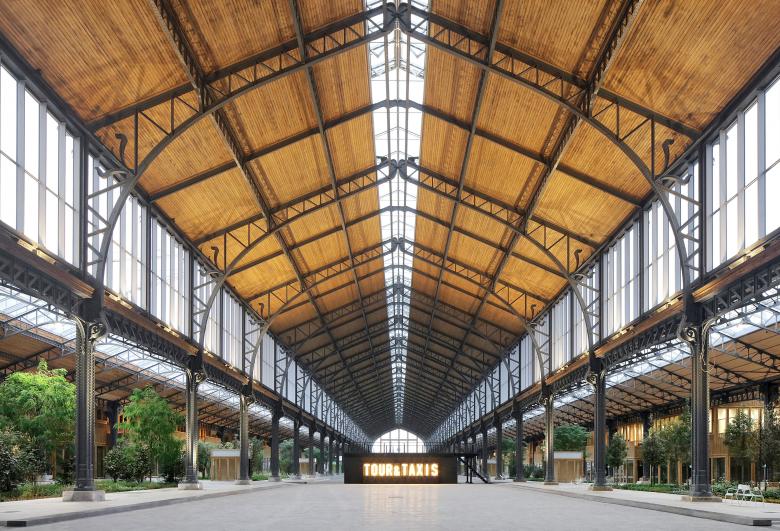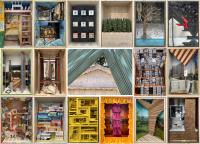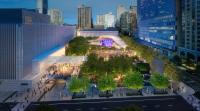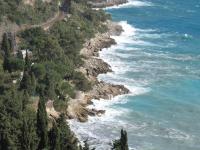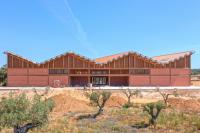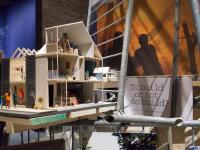Gare Maritime
Brussels, Bélgica
Name of work in English
Gare Maritime
Name of work in original language
Gare Maritime
Placement
Shortlisted
Prize year
2022
Location
Brussels, Belgium
Year completed
2020 (Year began 2018)
Authors
Michiel Riedijk (1964 The Netherlands); Willem Jan Neutelings (1959 The Netherlands)
Collaborators
Local Executive Architect: Bureau Bouwtechniek Architect: JDMA (heritage) Landscape architect: OMGEVING Art: Henri Jacobs Structural engineering: Ney & Partners Building physics: Boydens engineering Engineering: Boydens engineering Acoustical: Venac Fire consulting: FPC Risk Consulting: Bopro Construction company: MBG Construction: Züblin
Program
Commerce
Labels
Mall
Total area
39000 m2
Usable floor area
45000 m2
Client
Extensa Group
Client Type
private
Map
LatLng: (50.864211270317206, 4.344908148687732)
GARE MARITIME BRUSSELS is the sustainable regeneration of the monumental freight station into a covered city district, a ‘city where it never rains’.
The monumental Gare Maritime on the Tour & Taxis site in Brussels has been transformed into a new city district. Once Europe’s largest railway station for goods, Gare Maritime is now turned into an inspiring place for companies, ranging from start-ups to renowned brands. Together they surround an impressive public space for all kind of events.
As this new covered city is designed entirely in wood, Gare Maritime is an excellent example of a sustainable development. Moreover it is the largest CLT-project in Europe.
The development of the Gare Maritime is an important contribution to the development of the Tour & Taxis site and the Kanaalzone in Brussels. The preservation of this monumental building emphasizes Brussels exemplary role in sustainability.
Neutelings Riedijk Architects designed the Gare Maritime as a city quarter, carefully connected to the existing urban context. The enormous building is no less than 280 meters long and 140 meters wide. It consists of 3 larger and 4 smaller halls that now have been made accessible to the public again. Under the existing roofs of the side aisles, 12 new building volumes are added to accommodate the new program of 45.000 m2. The 12 pavilions create a new structure of boulevards and streets, parks and squares, that follows the existing urban context and the building structure in a natural and logical way, like a true city. The pavilions are interconnected by sculptural oak "staircases" above the inner streets.
The large central space in the heart of the building has been kept open for all kinds of public events. This public space has a pleasant climate that follows the changing of the seasons. Inspired by the ‘Ramblas’, on both sides of the event space a green walking boulevard is created. These pedestrian routes give enough room for 10 spacious inner gardens. For the little squares, Brussels visual artist Henri Jacobs designed 8 mosaics.
The construction of the new pavilions has been realized in Cross Laminated Timber (CLT) and the reduction in the amount of cement was enormous: in concrete, the building would have been five times heavier. The choice for wood also had a favorable effect on the construction process: thanks to prefabrication and the dry constructing method, the construction time was considerably shorter than when using traditional construction methods. Circularity was also a main design starting point. That resulted in the design of demountable connections and modular wooden building elements.
Gare Maritime is state of the art in sustainability: entirely energy neutral and fossil free. The glass facades on Picardstreet are provided with solar cells. On the roofs a total area of 17,000 m2 of solar panels has been installed. At all levels - construction, climate, circularity, biodiversity, health - far-reaching sustainability measures have been implemented. Use of geothermal energy and reuse of rainwater for watering the gardens are a few of the measurements taken.
- Arquitectos
- Neutelings Riedijk Architects
- Localização
- Picardstreet 7-11, 1000 Brussels, Bélgica
- Ano
- 2020
- Cliente
- Nextensa

